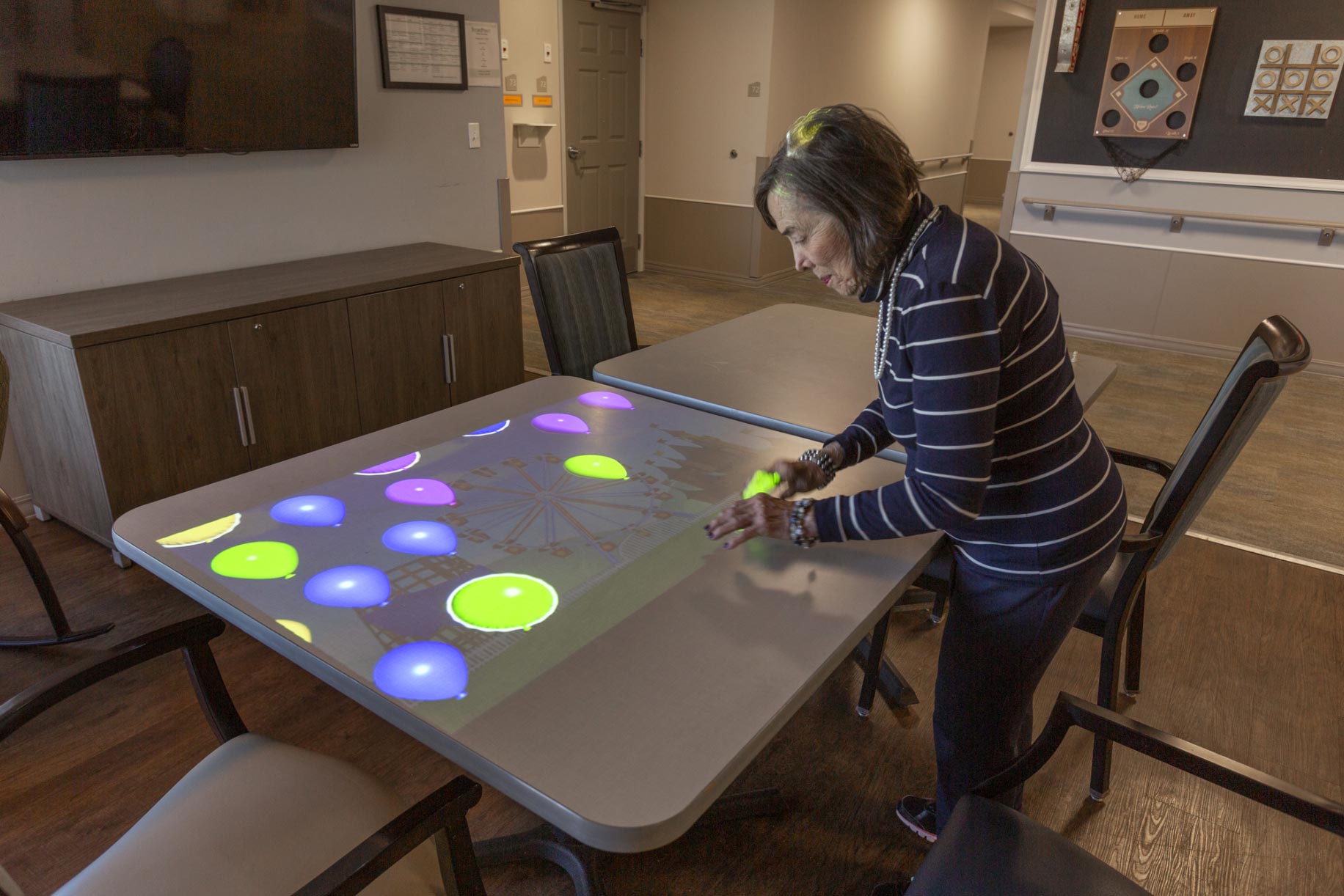Why Family Members Choose Reputable and Specialist Alzheimers Care Charlotte Facilities
Why Family Members Choose Reputable and Specialist Alzheimers Care Charlotte Facilities
Blog Article
Developing a Safe and Supportive Setting for Alzheimer's Care
The production of a risk-free and encouraging atmosphere for people with Alzheimer's is vital in enhancing their high quality of life. This involves not just physical adaptations within the home, such as lessening hazards and integrating familiar elements, but likewise the execution of structured regimens and meaningful tasks that provide to their cognitive demands. Comprehending the mental and psychological dimensions of treatment can significantly affect their feeling of safety and security and link. Exploring these diverse approaches can expose critical understandings into efficient caregiving approaches that may change the everyday experiences of both people and caregivers.
Comprehending Alzheimer's Demands
Frequently, people with Alzheimer's condition show a variety of requirements that require tailored methods to care. As the condition progresses, cognitive decrease shows up in numerous methods, affecting memory, reasoning, and even the ability to perform daily activities. Caregivers have to acknowledge these progressing needs to provide suitable assistance and make certain a greater quality of life for those influenced.
One crucial facet of recognizing Alzheimer's requirements is acknowledging the importance of regular and experience. Individuals usually discover comfort in recognized patterns, which can reduce anxiousness and confusion. Caretakers ought to strive to produce structured day-to-day routines that include significant activities straightened with the person's interests and capabilities.
Additionally, reliable communication is extremely important. Individuals with Alzheimer's may battle to reveal themselves or comprehend complex language. Caretakers must use basic, clear language, use non-verbal signs, and practice energetic paying attention to promote understanding and connection.
Lastly, social and psychological requirements can not be overlooked. Giving chances for social communication and keeping relationships can significantly improve emotional wellness. Caregivers must encourage engagement in area tasks or family celebrations, advertising a sense of belonging and function. Understanding these varied demands is necessary for developing a supportive care atmosphere.
Designing a Safe Home
Developing a secure home for people with Alzheimer's illness is vital to advertising and lessening risks self-reliance. The style of the living room ought to focus on safety and security while permitting individual convenience. Initially, eliminate potential hazards such as loosened carpets, sharp objects, and clutter, which can bring about drops or mishaps. Make sure that pathways are well-lit and clear, as appropriate illumination lowers disorientation and improves movement.
Integrating adaptive functions is also essential. Mount grab bars in restrooms and near staircases, and consider making use of non-slip mats in damp areas. Furthermore, making use of contrasting shades for walls and floors can assist in distinguishing areas, helping to reduce confusion.
Experience is vital for people with Alzheimer's. Customizing the environment with familiar things and photographs can strengthen a feeling of belonging and safety and security - Alzheimers Care Charlotte. It is also useful to have actually a designated area for everyday tasks, such as analysis or crafting, which can provide structure to their day
Finally, implementing a safe exterior space enables for secure exploration while linking with nature. By attentively designing the home atmosphere, caretakers can significantly enhance the lifestyle for people coping with Alzheimer's disease.
Enhancing Communication Skills

Non-verbal communication, consisting of faces, motions, and touch, plays an essential function in sharing compassion and understanding. Keeping eye call and a calm behavior can improve the comfort degree news of the person, advertising a sense of safety and security.
In addition, it is necessary to practice energetic listening. This includes being fully existing, showing perseverance, and allowing the individual to reveal themselves without disturbance. Repeating may be needed; caregivers need to be prepared to revisit subjects or questions, as people with Alzheimer's may have problem with memory recall.
In addition, using aesthetic aids or hints, such as photographs or acquainted objects, can assist in recognition and interaction. Inevitably, improving interaction skills is regarding constructing count on and developing an environment where people really feel heard, valued, and comprehended, thereby enhancing their top quality of life.
Encouraging Social Interaction
Cultivating significant social communications can significantly boost the well-being of individuals with Alzheimer's condition. Involving with others not only aids battle feelings of seclusion yet also promotes cognitive feature and psychological health. Structured social activities, such as team arts, video games and crafts, or music therapy, produce possibilities for residents to get in touch with peers and caretakers, which can lead to enhanced state of mind and lowered stress and anxiety.
Developing an inviting environment that motivates socializing is crucial. This can be achieved by preparing communal spaces that help with communication, such as comfy seating areas or activity areas. Additionally, including culturally pertinent and familiar tasks can urge and trigger memories engagement, allowing individuals with Alzheimer's to feel more linked to their past experiences.
Moreover, caregivers must be trained to recognize and advertise social engagement among citizens. By focusing on social interaction, we can considerably enrich the lives of those living with Alzheimer's, promoting a sense of community and belonging.
Supporting Caregiver Health

To Get More Info support caretakers, companies ought to use routine training and educational resources to enhance their understanding of Alzheimer's illness and caregiving strategies. Giving access to respite treatment services permits caregivers to take necessary breaks, lowering tension and fatigue - Alzheimers Care Charlotte. In addition, cultivating an area via assistance groups can assist in psychological sharing and the exchange of practical advice among caretakers, developing a network of common assistance
Mental health sources, such as counseling solutions, can also be vital in addressing the psychological toll caregiving can take. By prioritizing caregiver health, we produce a more lasting caregiving atmosphere that not only benefits the caretakers themselves however additionally improves the total quality of care gotten by individuals with Alzheimer's. Inevitably, sustaining caretakers is a crucial part in fostering a caring and effective care setting.
Conclusion
To conclude, the production of a secure and encouraging setting for people with Alzheimer's is necessary to enhancing their quality of life. By focusing on security with thoughtful layout, fostering emotional well-being with familiar components, and promoting interaction with structured routines, caretakers can substantially influence here the total experience of those affected by this condition. Supporting caregiver well-being is crucial, as it eventually adds to a much more caring and efficient care setting.
Repetition may be needed; caregivers must be prepared to take another look at questions or subjects, as individuals with Alzheimer's might battle with memory recall.

Report this page